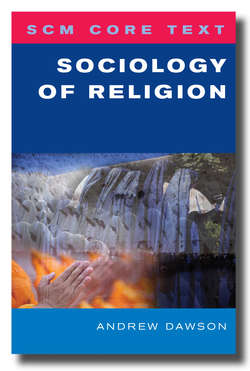Читать книгу SCM Core Text Sociology of Religion - Andrew Dawson - Страница 52
На сайте Литреса книга снята с продажи.
Émile Durkheim (1858–1917)
ОглавлениеWriting a generation later than Marx, Durkheim’s theoretical engagement with society is something more akin to the sociological endeavour as we understand it today. In The Division of Labour in Society (1893/1984) and The Rules of Sociological Method (1895/1982), Durkheim unites received enquiry with pioneering reflections upon social structure and methodology in ways which continue to be important referents of much contemporary social science. In the same vein, and despite its rudimentary nature, Durkheim’s use of statistics in his analysis of the varying suicide rates of different European countries (On Suicide, 1897/2006) established patterns of enquiry followed by subsequent generations of sociologists.2 Although his earlier works treat the social relevance of religious discourse and practice, it was Durkheim’s last major work which established him as one of the most formative figures in the history of sociology’s engagement with religion. The Elementary Forms of Religious Life (1912/2001) continues to be indispensable reading for all would-be sociologists of religion.
Raised as an orthodox Jew, Durkheim’s engagement with religion is nevertheless flavoured almost entirely by the typically French preoccupations of the time with social integration (Lukes, 1992). The theoretical backdrop against which Durkheim works can be summed up by the following problematic: Given that the collective reality of society is populated by naturally self-interested individuals, how does it continue to function? Ultimately, Durkheim’s response to this question is twofold. First, society functions best when it accommodates individuality through the nurturing of typically human traits such as initiative, creativity and self-expression. While these traits have served humanity well in its long evolutionary ascent, they find their best expressions through the socio-cultural conditions made possible by the historical emergence of society. Second, the optimal functioning of society requires the subordination of individuality to the collective needs of the social whole. Unless individuals are so minded to co-operate, compromise and, at times, make sacrifices, the corporate structures and collective processes through which society is founded simply cannot exist. An irony not lost on Durkheim is that while individuals are at their best when living in society, the successful functioning of society requires the inhibition of unqualified individuality. Consequently, the human condition is such that the individual is best served through her subordination to something greater than herself:
The individual submits to society and this submission is the condition of his liberation . . . By putting himself under the wing of society, he makes himself also, to a certain extent, dependent upon it. But this is a liberating dependence. (1965, p. 72)
As with the functionalist tradition which he is often credited as founding, Durkheim’s response to the above problematic revolves around understanding the optimal functioning of society as achieved through its ability to generate ‘social solidarity’ through the integration of individuals within socially cohesive structures and processes. Such integration, however, is no easy matter. Given humankind’s nature, the subordination of individual self-interest to the collective interests of the social whole comes neither naturally nor easily. As a result, individual submission to social processes must be generated from outside, be constantly reinforced and come with ‘a tone of authority’ sufficient to engender from individuals something which might ‘even tell him to violate his most natural inclinations’ (2001, pp. 156–7). It is here that religion has traditionally played its part.
